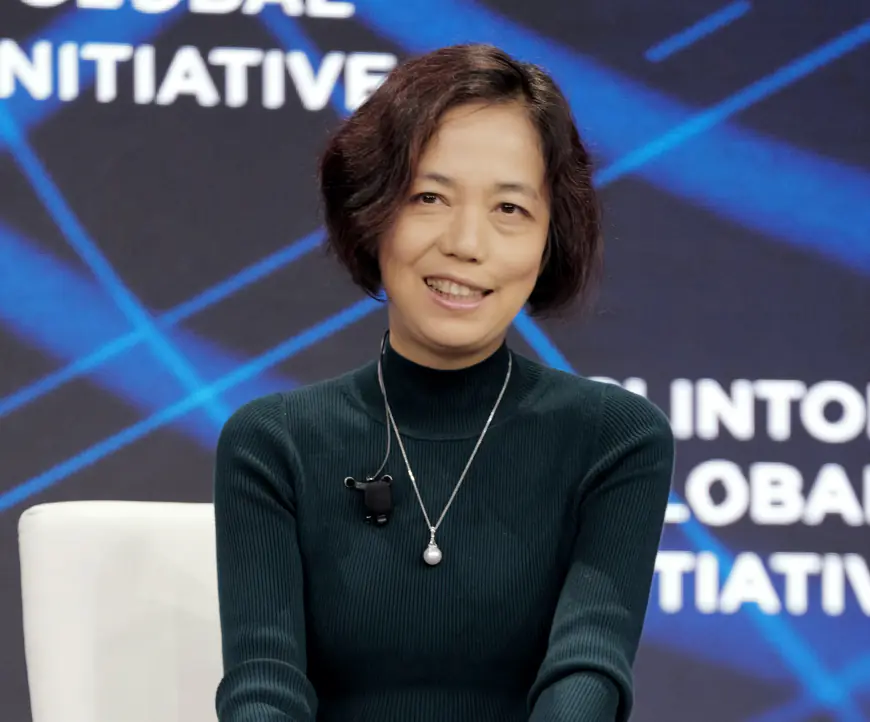‘Godmother of A.I.’ Fei-Fei Li Has No Idea What A.G.I. Means
"I don't spend too much time thinking about these words because I think there's so many important things to do."



Achieving artificial general intelligence (A.G.I.), a form of A.I. with human-level intelligence and capabilities, is top of mind for the most dominant players in the field. OpenAI just raised $6.6 billion to fund its ambition toward that goal. Its rivals like Google DeepMind and Anthropic are also racing to achieve A.G.I.
However, A.G.I. remains a vague concept in academia. One that Fei-Fei Li, a renowned computer scientist, isn’t too sure about. “I frankly don’t even know what A.G.I. means,” she said last month during the Credo AI’s Responsible A.I. Leadership Summit. “People go, ‘You’ll know when you see it.’ I guess I haven’t seen it.”
Often hailed as the “godmother of A.I.” for her contributions to the field, Li played a pivotal role in the technology’s early development. She helped establish ImageNet in the 2000s, a training database of 15 million images that paved the way for subsequent breakthroughs in machine learning. In the first decade of the 21st century, researchers were “quietly laying the foundation and studying the field,” said Li.
But a series of rapid achievements—including the 2012 breakthrough of the AlexNet program, the 2016 introduction of the AlphaGo program and the 2022 release of OpenAI’s ChatGPT chatbot—changed the sector profoundly. “The industry started pouring resources and paying attention to this transformative technology,” said Li. “It became chaotic, it became messy.”
Li, who studied at Princeton and the California Institute of Technology before heading up an A.I. lab at Stanford, delved into private industry in 2017 when she took a job as chief scientist of A.I. and machine learning at Google Cloud. This was the first time she realized that a technology “that was so personal to me, as a pursuit of curiosity and knowledge, has now turned into a force of change for our society.”
A year later, she decided to start a new center at Stanford dedicated to advancing human-centered A.I. research, development and policy. While much has been said about the existential dangers of the new technology, Li is more focused on how its impacts will affect everyday lives. “I think it’s very important that we steer away from the sci-fi speculation and hyperbole in instigating public fear, but really put a stronger light to shine on real problems that impact real people,” she said. Issues like fairness, privacy, misinformation and democracy are all key aspects of Stanford’s Human-Centered A.I. Institute (HAI), added Li.
Fei-Fei Li’s new startup aims to close the “gap between seeing and doing.”
Earlier this year, Li took a partial leave from her position at Stanford to work on her own A.I. startup, World Labs. Co-founded with some of Li’s former students, the startup revealed in September that it has already raised more than $230 million in funding from the likes of Andreessen Horowitz, Radical Ventures, Marc Benioff, Geoffrey Hinton, Reid Hoffman and Eric Schmidt.
World Labs is focused on establishing what Li describes as “spatial intelligence,” which refers to developing machines that can understand, navigate and reason with the 3D world. Achieving this type of intelligence through large world models will close the “gap between seeing and doing,” said Li. It will also take a significant amount of time and effort. The evolution of linguistic intelligence took roughly one million years from its rudimentary beginnings to the profound use of language in human life, according to Li. The evolution of spatial intelligence or taking action with vision and perception, meanwhile, took around 540 million years.
While Li’s efforts are in its early stages, the academic has a clear idea of what she hopes A.I can achieve in the future. She wants to see progress across fields like health care that are enhanced by the technology, instead of simply witnessing developments in A.I.—such as A.G.I.—for the sake of the technology itself.
“The truth is, I don’t spend too much time thinking about these words because I think there’s so many important things to do,” she said. “In education, in pushing forward the human-centered A.I. framework, in multi-stakeholder outreach and in working with my colleagues and students.”
What's Your Reaction?









































































































